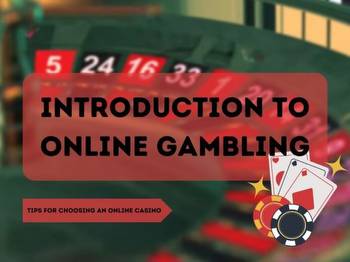Get set before you bet: 4 tips for responsible gambling

Setting limits around how much money and time you spend on gambling can help you avoid unwanted consequences.
Here are some tips and strategies you can use to mitigate financial risks and significant losses:
- Set time and money limits. Take advantage of the tools available on gambling sites and at casinos to help you monitor your play and know when you’ve gone over your time or money limit.
- Gamble only with money set aside for entertainment. To help ensure you don’t get carried away, consider leaving your credit and debit cards at home to help you stick to your budget. Never borrow money or use money intended for basic needs like rent and food.
- Know how the game works and the risks before you play or bet. Being uninformed or misinformed about how a game is played can increase the risk of big losses.
- Bet only what you can afford to lose. If you end up losing money, don’t try to win it back.
Gambling can, at times, have addictive qualities with effects similar to other addictions. Be mindful of maintaining balance by ensuring you are continuing to engage in other activities by:
- Balancing recreational gambling with other hobbies and interests.
- Deleting gambling apps from your phone, laptop and other mobile devices.
- Blocking websites you don’t want access to or setting time limits using software like Bet Blocker and GamBan.
- Not playing or betting when you’re upset or stressed.
- Avoiding mixing gambling with alcohol or other substances, which may lead to choices related to gambling you would not otherwise make.
3. Know the warning signs
Think back over the past 12 months and ask yourself:
- Are you gambling more often or with more money?
- Are you withdrawing from relationships?
- Have you borrowed money to cover gambling debts?
Recognizing red flags in the way you gamble can help ensure that your gambling does not get out of control. You can take this quick quiz to assess your gambling habits in the past 12 months.
science behind gambling. This article will show you how your brain’s reaction to wins and losses can create habits that are hard to break. A better understanding of this may assist you in knowing when to take a break from gambling.
4. Get help and seek recovery
Besides the potential financial risks, problem gambling can increase your risk of anxiety, depression, suicidal thoughts and relationship issues. If you are struggling, there are resources and programs available to support you including:
*Gambling is prohibited in CU Boulder residence halls. NCAA rules prohibit athletics staff and student-athletes from participating in any sports wagering activities on an NCAA sponsored sport, at any level.
































